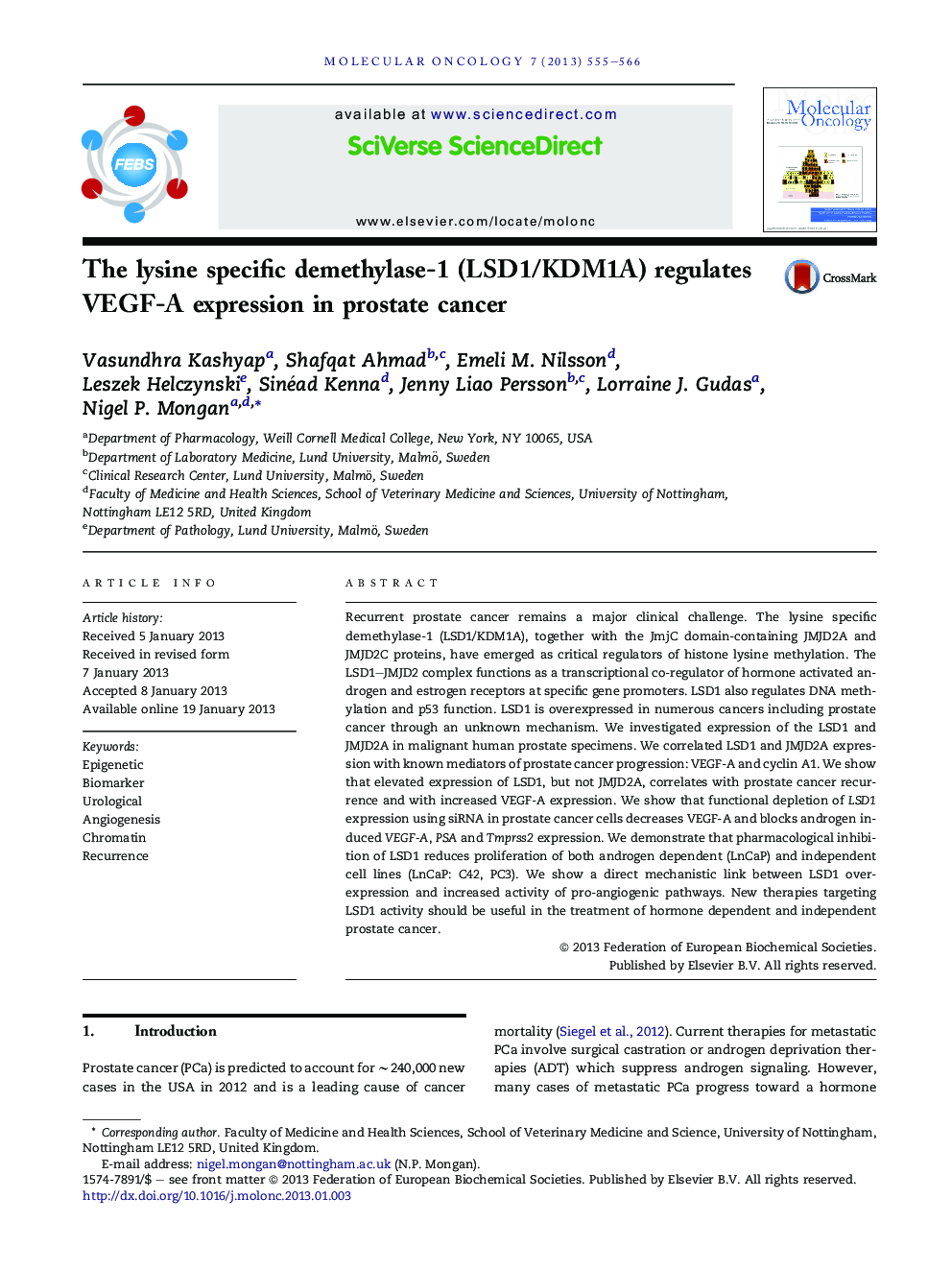| Article ID | Journal | Published Year | Pages | File Type |
|---|---|---|---|---|
| 2145723 | Molecular Oncology | 2013 | 12 Pages |
Recurrent prostate cancer remains a major clinical challenge. The lysine specific demethylase-1 (LSD1/KDM1A), together with the JmjC domain-containing JMJD2A and JMJD2C proteins, have emerged as critical regulators of histone lysine methylation. The LSD1–JMJD2 complex functions as a transcriptional co-regulator of hormone activated androgen and estrogen receptors at specific gene promoters. LSD1 also regulates DNA methylation and p53 function. LSD1 is overexpressed in numerous cancers including prostate cancer through an unknown mechanism. We investigated expression of the LSD1 and JMJD2A in malignant human prostate specimens. We correlated LSD1 and JMJD2A expression with known mediators of prostate cancer progression: VEGF-A and cyclin A1. We show that elevated expression of LSD1, but not JMJD2A, correlates with prostate cancer recurrence and with increased VEGF-A expression. We show that functional depletion of LSD1 expression using siRNA in prostate cancer cells decreases VEGF-A and blocks androgen induced VEGF-A, PSA and Tmprss2 expression. We demonstrate that pharmacological inhibition of LSD1 reduces proliferation of both androgen dependent (LnCaP) and independent cell lines (LnCaP: C42, PC3). We show a direct mechanistic link between LSD1 over-expression and increased activity of pro-angiogenic pathways. New therapies targeting LSD1 activity should be useful in the treatment of hormone dependent and independent prostate cancer.
► Increased LSD1 correlates with prostate cancer recurrence. ► LSD1 is a positive regulator of androgen regulation of VEGF-A, PSA and Tmprss2. ► LSD1 inhibition impairs prostate cancer proliferation. ► LSD1 regulates pro-angiogenic and pro-androgenic pathways. ► Novel therapies targeting LSD1 should improve prostate cancer outcomes.
